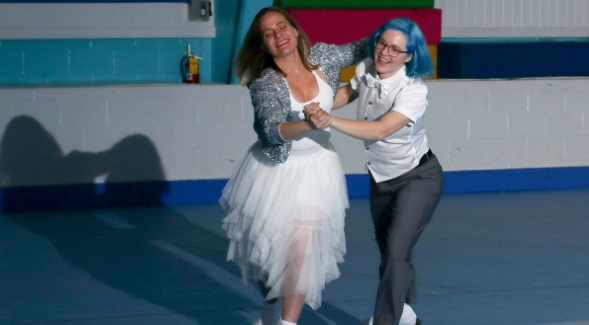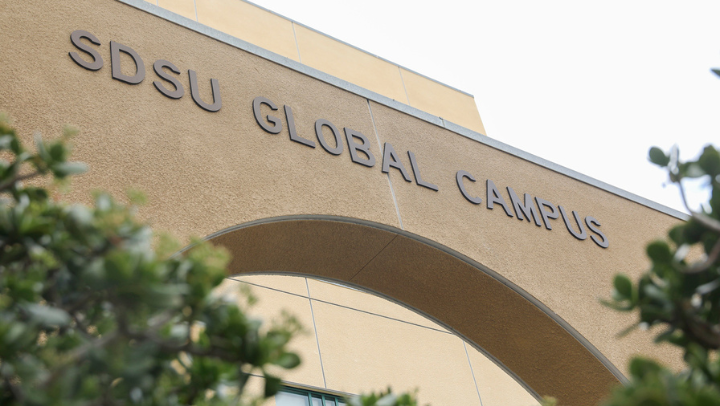Celebrating PRIDE: Importance of Representation and Community
SDSU professor Amanda Marino knows firsthand the value of a support system for first-gen, LGBTQ+ students.

As a youngster growing up in Pennsylvania, Amanda Marino didn’t think much about what it meant to be gay. She grew up in a conservative environment where the freedom to express herself wasn’t encouraged.
“I attended a religious grade school that clearly did not support queer folks,” said Marino, now a professor at San Diego State University’s Charles W. Lamden School of Accountancy within the Fowler College of Business. “Lack of representation can make you feel alone and make it really difficult to explore issues that make you feel different or othered.”
As an adult, Marino stumbled upon roller derby and began to build her own supportive community.
“Roller derby is such an inclusive space. I skate with women, men and nonbinary folks,” she said. “The sport is a home for trans, gay, bi, and other queer folks to skate alongside straight folks.” Growing as an athlete within this supportive environment helped her decide to open up to her friends and family about her sexuality.
But when she summoned the emotional strength to come out to her family, it did not go well.
“There was a lot of religious-based judgment and anger,” said Marino. “I don’t think it has to be that way, since I believe you can be a religious person and still be loving and accepting of queer people. I don’t think those two concepts are mutually exclusive, but that isn’t what I experienced.”
Although some of Marino’s loved ones did not initially respond well, she found love and acceptance within her community.
“I have learned that, although not everyone might accept who you are, you can build your own community of friends and family who do love and accept you,” said Marino. “That can give you the strength and happiness to persevere.”
Another important part of Marino’s identity is being a first-generation college graduate. She attended Bentley University in Waltham, Massachusetts, where she earned both her bachelor’s and master’s degrees.
“As a first-gen student, I needed a lot of help figuring out how to be successful in the classroom and how to find a good job,” said Marino, who served as a tax accountant and investment advisor at Deloitte, KPMG, and EY following the completion of her degree programs. “I had a few really amazing professors that had a huge impact in my life and my success as a public accountant.”
After working in the accounting industry for ten years, Marino chose to return to academia when she began teaching as an adjunct faculty member and lecturer in several Boston-area universities before returning to school herself. She earned her Ph.D. in business with a specialization in accounting from Drexel University in 2021.
Her experience as a first-generation college student is what brought her to SDSU the same year.
“I love that SDSU has such a large first-gen student population,” she said. “I love helping (provide) assistance to students who might not have come from academic knowledge and wealth with the guidance and tools to succeed. I want to pass on the support I received as a first-gen student. There’s really a lot of room to make a meaningful difference in their lives, and that feels inspiring to me as an educator.”
It is also important to Marino to be upfront with her students as a queer woman.
“I talk openly with my students about my life with my wife,” she said. “I think it is important for these young people who exist in marginalized groups to see successful representations in positions of power that they can relate to. I want them to know that they can find the joy and support in the queer community to help them embrace and celebrate their sexuality.”
Marino, who recently celebrated her third wedding anniversary, said Pride Month “is a nice time to reflect on how we got here, individually and as a community.”
“We can appreciate all the battles that were fought for my right to marry my love and plan for a family,” she added. “Pride Month is a time to celebrate our queerness and to also remember we need to keep working and being vocal if we want to continue to progress as a society without stalling or backtracking.”



